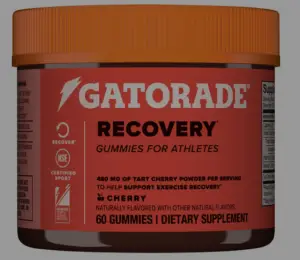Star sprinter says PepsiCo’s Gatorade gave him contaminated product
One of the world’s fastest sprinters has sued PepsiCo Inc.’s Gatorade division for allegedly giving him a contaminated product that got him banned from competition and wrecked his career.
Issam Asinga is seeking unspecified monetary damages, in a complaint filed on July 11 in U.S. District Court in White Plains.

“As a result of Gatorade’s actions,” the complaint states, “Issam has lost everything he has worked so hard for.
“Issam can no longer compete for Suriname in this summer’s Paris Olympics, he will lose his four-year athletic scholarship to Texas A&M University, he was unable to compete in the 2023 and 2024 World Athletic Championships, he was stripped of his world records, and he lost a Nike endorsement worth millions of dollars.”
PepsiCo’s media relations team based in Purchase did not provide a response to the allegations.
Asinga was 18 and a high school senior in Florida when he ran a 100 meter dash in 9.83 seconds, beating a six-time world champion and Olympic medalist. A week later, he set an American high school record in the 200 meter sprint.
Gatorade chose him for its National Player of the Year Award in boys track and field and flew him to Los Angeles for an awards ceremony in July 2023.
Asinga’s dressing room locker contained “freebies,” according to the complaint, including bottles of Gatorade Recovery Gummies. The supplement was labeled as “certified for sport” by an independent organization that tests products for contaminants and doping agents.
Asinga and his mother asked his coach if the gummies were safe. After reviewing photos of the bottle, the coach responded in a text: “Oh yea these are both fine. Gatorade doesn’t make products that are against sporting rules.”
Asinga began using the gummies after his workouts.
On July 18, 2023, he provided a urine sample for a routine anti-doping test, the complaint states. On Aug. 9, the results came back. Trace amounts of cardarine –an artificial substance that the World Anti-Doping Agency banned in 2009 – were detected in his urine.
Asinga was not allowed to compete in the upcoming World Athletics Championships in Budapest, Hungary.
He searched for the source of the contamination, according to the complaint, and submitted a backup urine sample, the two open bottles of gummies, and supplements and medicines he was using, for testing. Trace amounts of cardarine were detected in the backup urine sample and gummies.
The next step, to establish his innocence, was to submit a sealed bottle of gummies from the same lot as the gummies Gatorade gave him.
Federal regulations require manufactures of dietary supplements to keep samples of each lot of distributed dietary supplements for testing, according to the complaint. But Gatorade allegedly said the gummies had been discontinued and it had no sealed bottles.
Instead, the complaint states, Gatorade submitted a sealed bottle from a different lot that had been certified as clean. No contaminants were detected.
Last November, a Gatorade representative revealed that the gummies had been discontinued and there had been “manufacturing issues,” according to the complaint.
In December, the testing organization confirmed that it had not tested or certified the gummies given to Asinga, but it did certify the lot that included the bottle Gatorade later found and submitted in Asinga’s case.
Last month, after receiving bad publicity about the Asinga case, according to the complaint, Gatorade “suddenly found a sealed bottle from the lot that Issam had ingested.”
By then, nearly a year after Asinga used the gummies, his attorneys claim, cardarine was no longer detectable.
On May 6, the World Athletics Disciplinary Tribunal ruled that Asinga was responsible, under a strict liability standard, for ensuring that no banned substance enter his body. He was banned from competition for four years.
He has appealed the decision.
On June 4, the testing organization issued a public notice citing Gatorade for unauthorized use of its “Certified for Sport” trademark.
Asinga’s attorneys argue that Gatorade used him as a marketing tool to promote its products when he was a rising star, but remained silent and refused to submit the correct sample when he needed Gatorade’s help to prove his innocence.
They accused Gatorade of product liability, negligence, breach of implied warranty, deceptive and unfair trade practices, and infliction of emotional distress.
“Due to Gatorade’s distribution of contaminated supplements and its refusal to provide him with the evidence needed to clear his name,” the complaint states, “Issam has lost his ability to do what he loves: run fast on the world stage.”